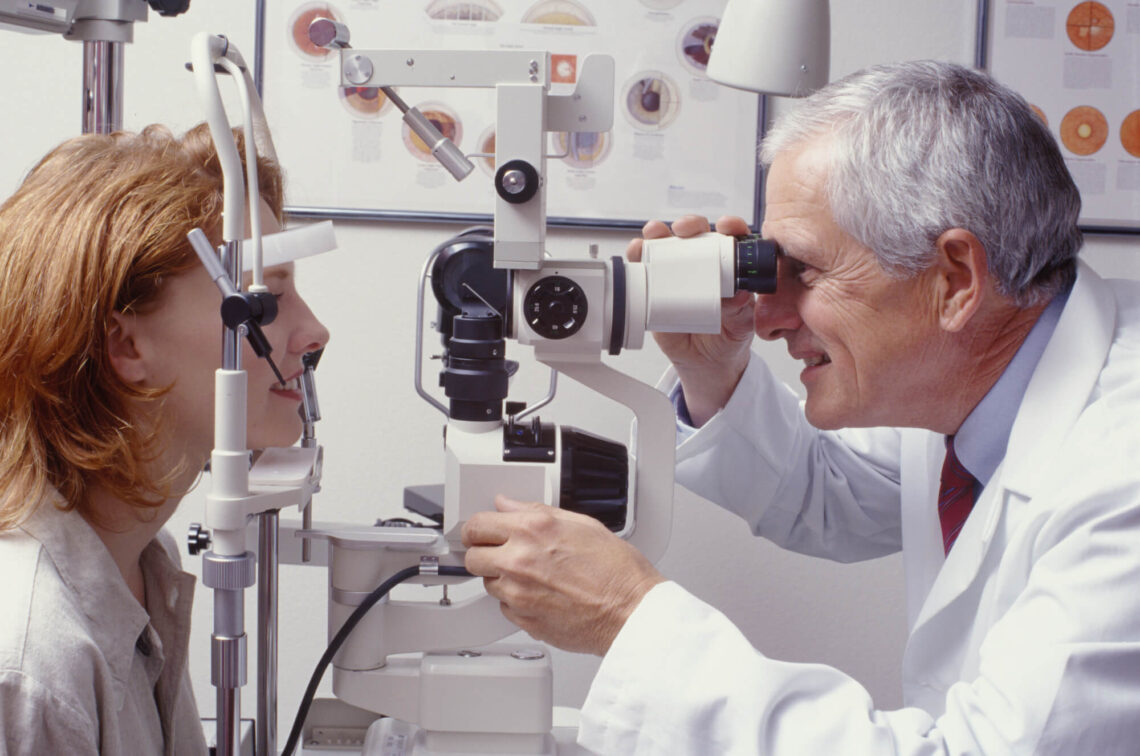
Things you should know before visiting a Sydney eye clinic
Visit a reputable optometrist in Sydney, Australia for a thorough Sydney eye clinic exam if you want to keep clear vision and guarantee excellent eye health for the rest of your life. These Sydney eye clinic examinations are essential for preventing a number of eye problems and illnesses, particularly in their early stages when there may not always be evident symptoms or indicators. You’ll be able to quickly get the appropriate therapy, which in turn might possibly help preserve your eyesight, with a complete Sydney eye clinic exam and early diagnosis of your visual issues.
If this is your first time seeing an optometrist, you should be ready. Your eye doctor will enquire extensively about your medical and family history, as well as other pertinent details. They will pay close attention to any history of eye issues when a sydney eye clinic examine your personal and family health since this information might be useful in determining the origin of different eye disorders and difficulties. Additionally, it enables them to decide if additional Sydney eye clinic examinations are necessary to rule out certain eye problems that may also be signs of other illnesses. They will be able to provide the ideal remedy after they have determined the root of the problem.
Related: Understand the different functions of doctors in a Sydney eye clinic
You should be aware of the following items before seeing your Sydney eye doctor:
1. Be aware of your past.
What eyesight or eye issues are you dealing with? When did these problems start? Just to name a few, your optometrist will ask you questions during the course of the actual appointment, so it pays to be ready with responses. Additionally, you should let them know about any drugs you may be taking as well as any environmental or occupational factors that may be influencing your vision. They’ll also inquire about any prior eye disorders you or your family members may have had, as was already discussed.

2. Refrain from researching your symptoms online.
Self-diagnosis may be unnecessary stressful in addition to being erroneous. A trip to a renowned eye specialist in Sydney is the best course of action if you want to ascertain the precise origin of your eye issue and its resolution.
3. Find a reputable Sydney eye clinic.
Actually, selecting the ideal professional is not too stressful. Speaking with your primary care provider, who will know the names of eye specialists in your region, is an excellent place to start your search. They’ll be able to recommend someone to you who will work well for you. Ask your friends, family, and coworkers for suggestions as well. You should be able to get a recommendation from someone close to you who wears prescription glasses since they all have eye doctors. Finally, you might verify with trade associations like the Australian Optometric Association. You may use the search features on their websites to identify a reputable eye doctor in your neighborhood.
Pro-Tip. Make careful to verify with your insurance network when you reduce your list of potential eye doctors to make sure your requirements are truly covered. In fact, your insurance representative may be able to provide you with a few leads for locating a reputable ophthalmologist.
4. Acquire the ability to recognize the many categories of Sydney eye physicians.
Sydney eye clinic experts come in three different subcategories: ophthalmologists, opticians, and optometrists. Ophthalmologists are medical professionals with a focus on the eyes. They can diagnose and treat eye problems, conduct operations, and prescribe contacts and glasses in addition to these services. Contrarily, optometrists don’t conduct vision examinations or do eye procedures, but they do specialize in corrective lenses to help you see as well as possible.
In Sydney, optometrists provide vision examinations and recommend corrective lenses and eyeglasses. They can assess whether you would be a candidate for eye procedures even if they don’t actually conduct them. Optometrists may also help before and after surgery.

5. Verify a possible eye doctor’s qualification.
You shouldn’t entrust the health of your eyes to just anybody since your vision is important to your everyday activities. You need a specialist who can reliably guarantee a worry-free encounter. The following are some qualities to look for in an optometrist:
A doctorate in optometry (OD): This enables them to analyze your eyes for health and vision issues as well as rectify refractive errors by prescription contact lenses and eyewear, among other services. To assist treat certain eye conditions and disorders, some may also prescribe drugs. Since they are registered with the government, state law determines the extent of the medical treatment. Additionally, your optometrist need to be well-versed in the most recent safety and health laws.
A dedication to lifelong learning: Your Sydney optometrist must continue their education and training in order to keep their license active. It is advantageous to choose an eye doctor who keeps up with the most recent standards, technical developments, research, and practices since optometry is a subject that is always changing.
Expertise: You should choose an optometrist with extensive expertise who is skilled enough to undertake the most delicate clinical procedures. They should pay extraordinary attention to detail so that particular eye illnesses and ailments may be diagnosed and treated with greater accuracy. Your eye doctor should also possess the essential scientific memory skills to recall important details about the eye and its relationship to the human body.
Exceptional communication abilities: Like the majority of medical professionals, optometrists have intimate relationships with their patients, so it makes sense to choose one that exhibits tact, empathy, and great communication abilities. Your optometrist will be able to communicate issues and remedies to you more plainly if you can develop a relationship that enables clear doctor-to-patient communication.

Customized support: Select an optometrist with a welcoming, knowledgeable, and experienced staff for more peace of mind. After all, not every patient seeking eye care is the same, and knowledgeable personnel will be able to help the eye doctor choose the best service to meet your particular requirements.
State-of-the-art medical tools and premium eye care supplies: For better and more precise detection and diagnosis of possible eye diseases, consider an eye specialist who employs Cutting-edge technology: Examine their eye care items in more detail as well. Their prescription eyewear in Sydney need to be of the highest caliber, enabling you to benefit from improved eyesight without sacrificing your comfort or sense of style.
Scleral RGP (rigid gas permeable) contacts are one of the most common lens alternatives advisable today. Patients who often utilize these lenses had refractive keratotomy surgery, moderate to severe keratoconus, pellucid marginal degeneration, and corneal damage (to some degree).
The majority of optometrists provide a large assortment of frames that may be tailored to meet your individual demands. Many people even have access to a variety of designer brands. Naturally, your optometrist should properly test your eyesight before letting you choose your contacts or glasses.
6. Make yourself ready.
When preparing for an appointment with an eye doctor, some people get anxious. Take a trusted companion who can assist you in asking questions and listening so that you can avoid this. Prepare some questions if you’re anxious; the more you have, the more knowledgeable you’ll be. Call as soon as you can to set up an appointment, particularly if your vision issues are urgent. If they are, emphasize how urgent your issue is. Ask whether they are in-network and take your insurance on the call. This has an impact on how you will be billed for your visit. Bring your insurance card and ID with you just to be safe. If you are a new patient, they are crucial for the paperwork.



